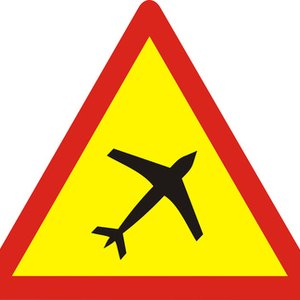
The United Kingdom (UK) government imposes airport taxes (known officially as UK Airport Passenger Duty). The airport tax is added to the price of your flight, collected by the airline and then paid to Her Majesty’s Revenue and Customs (HMRC). The duty is payable for each person travelling on any flight that departs from a UK airport. Airport taxes, as of Nov. 1, 2009, are split into four bands: A, B, C and D, which are further split between two classes of travel, standard rate and reduced rates, making a total of eight bands. Calculating how much airport tax you must pay is straightforward, but you need to know your travel class and approximate number of flying miles between your UK departure airport and your destination airport.
Choose your destination and airline. Check if your chosen airline operates different travel classes such as first, business or economy and then choose your travel class. Make a note of your choice. You need to know this to calculate how much airport tax you will pay as the UK operates two airport tax classes: standard rate and reduced rate. First or business class seats are charged the standard rate of airport tax (split into four bands) while economy seats are charged a reduced rate tax (split into four bands).
Calculate the number of miles from your UK departure airport to your destination airport using an online mileage calculation tool (see Resources for two free websites). Enter "UK" as your departure country and select the UK airport. Select your destination country and airport. Click “Calculate Distance” or “How Far” (similar phrases may be used). Your mileage will be calculated for you. Write the figure next to your travel class.
Go to the HMRC website (see Resources). Scroll down until you get to the listing of the latest airport tax (currently effective Nov. 1, 2009). Check your chosen travel class: first or business class relates to the standard rate listing, economy class relates to the reduced rate listing.
Choose your band: A, B, C or D based upon the mileage you calculated earlier. You now know the amount of airport tax payable. For example, if you are traveling business class, select standard rate. If your mileage is between 4,001 and 6,000, choose band C. Your airport tax is £100.
Tips
UK budget airlines such as Easyjet and Ryanair only operate economy seats, therefore the airport tax on these flights is at the reduced rate. Airport tax is not payable on flights departing from the Scottish Highlands and Islands.
Warnings
There are often other associated charges and fees (not taxes) that may be added to the price of your ticket. In the UK these may include UK passenger service charge, fuel surcharge and security and insurance surcharge. Check with your airline before buying your ticket. The country you fly back from is highly likely to impose its equivalent tax on the flight so you'll end up paying an additional fee, depending on the country's charging structure.
References
- HM Revenue and Customs: Air Passenger Duty
- Civil Aviation Authority: Taxes, Fees and Charges Added to Air Fares
- Internal Revenue Service. "Tax-Exempt Governmental Bonds," Page 3. Accessed Oct. 25, 2020.
- U.S. Securities and Exchange Commission. "What are Municipal Bonds." Accessed Oct. 25, 2020.
- Federal Register. "Policy and Procedures Concerning the Use of Airport Revenue; Proceeds From Taxes on Aviation Fuel." Vol. 79, No. 216. Friday, November 7, 2014. Accessed Oct. 25, 2020.
Tips
- UK budget airlines such as Easyjet and Ryanair only operate economy seats, therefore the airport tax on these flights is at the reduced rate.
- Airport tax is not payable on flights departing from the Scottish Highlands and Islands.
Warnings
- There are often other associated charges and fees (not taxes) that may be added to the price of your ticket. In the UK these may include UK passenger service charge, fuel surcharge and security and insurance surcharge. Check with your airline before buying your ticket.
- The country you fly back from is highly likely to impose its equivalent tax on the flight so you'll end up paying an additional fee, depending on the country's charging structure.
Writer Bio
Stephen Benham has been writing since 1999. His current articles appear on various websites. Benham has worked as an insurance research writer for Axco Services, producing reports in many countries. He has been an underwriting member at Lloyd's of London and a director of three companies. Benham has a diploma in business studies from South Essex College, U.K.

